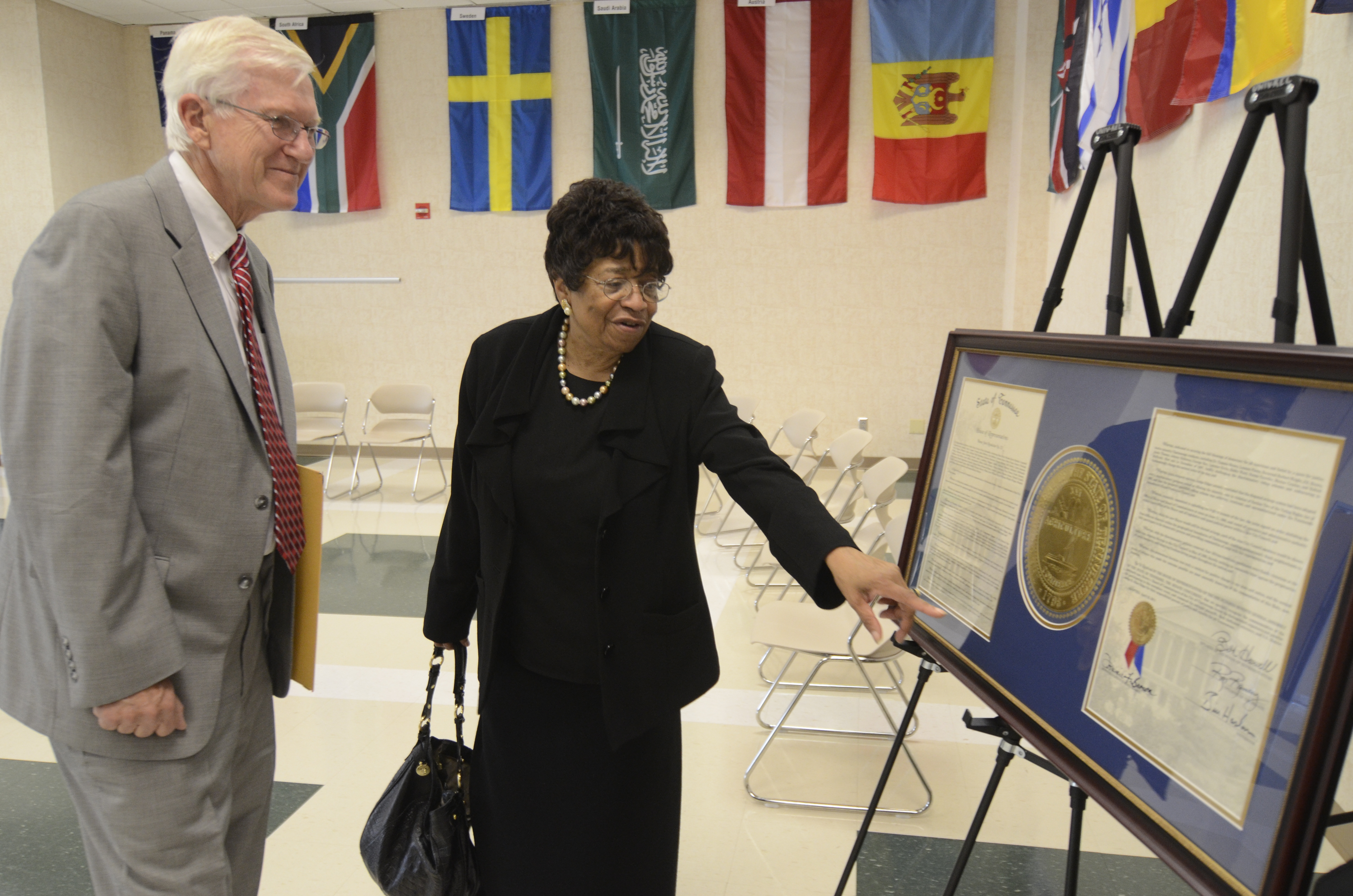Plaintiffs in a 1987 federal lawsuit that changed Chattanooga government to better represent minorities told an audience celebrating the event that black progress in other areas remains incomplete.
Some of the participants in the lawsuit recalled their involvement in the case Thursday afternoon at the University of Tennessee at Chattanooga, each thanking the many who worked on the suit and celebrating its result.
The case, Brown v. Board of Commissioners of the City of Chattanooga, resulted in the city's forming districts that better represent minorities, eliminated voting allowances for nonresident property owners and formed the current mayor-council form of government.
While acknowledging the importance of the suit, two plaintiffs in the audience, Maxine Cousins and Annie Thomas, told the group of nearly 100 people that social areas outside the courts have left much of the black community behind.
"We thought that we had arrived, and we started celebrating, and we kept on celebrating," Cousins said. "As far as social and economic progress, we still have a long way to go."
Senior U.S. District Judge R. Allan Edgar, who ruled in 1989 that the city's commission-style form of government and at-large voting violated the federal Voting Rights Act of 1965, admitted the limits of courts.
"The case did not solve all the problems in Chattanooga," he said. "Racial problems or any other kinds of problems."
But Tennessee Appeals Court Judge Richard H. Dinkins, who served as co-counsel for the plaintiffs in the case, clarified what the case did for Chattanooga and its black residents.
"The lawsuit was not to get blacks elected. The lawsuit was to have a fair process," Dinkins said. "That is in place, and that has endured."
Lead counsel on the case, ACLU attorney Laughlin McDonald, detailed the difficulties in winning voting rights cases against at-large election systems. McDonald, who has participated in hundreds of voting-related cases with the ACLU, said they are among the top four or five most complicated cases to bring to court, with the others including death penalty, antitrust and environmental lawsuits.
Simply to bring a voting rights suit before a judge, lawyers need political, statistical, historical and local expert witnesses to examine decades of population numbers, newspaper reports and political campaign information, McDonald said.
Chief U.S. District Judge Curtis Collier closed the event by citing the wider effect of such cases.
"On rare occasions the decision has much greater impact and reaches beyond the immediate time frame of the decision," Collier said. "Brown is that case."

